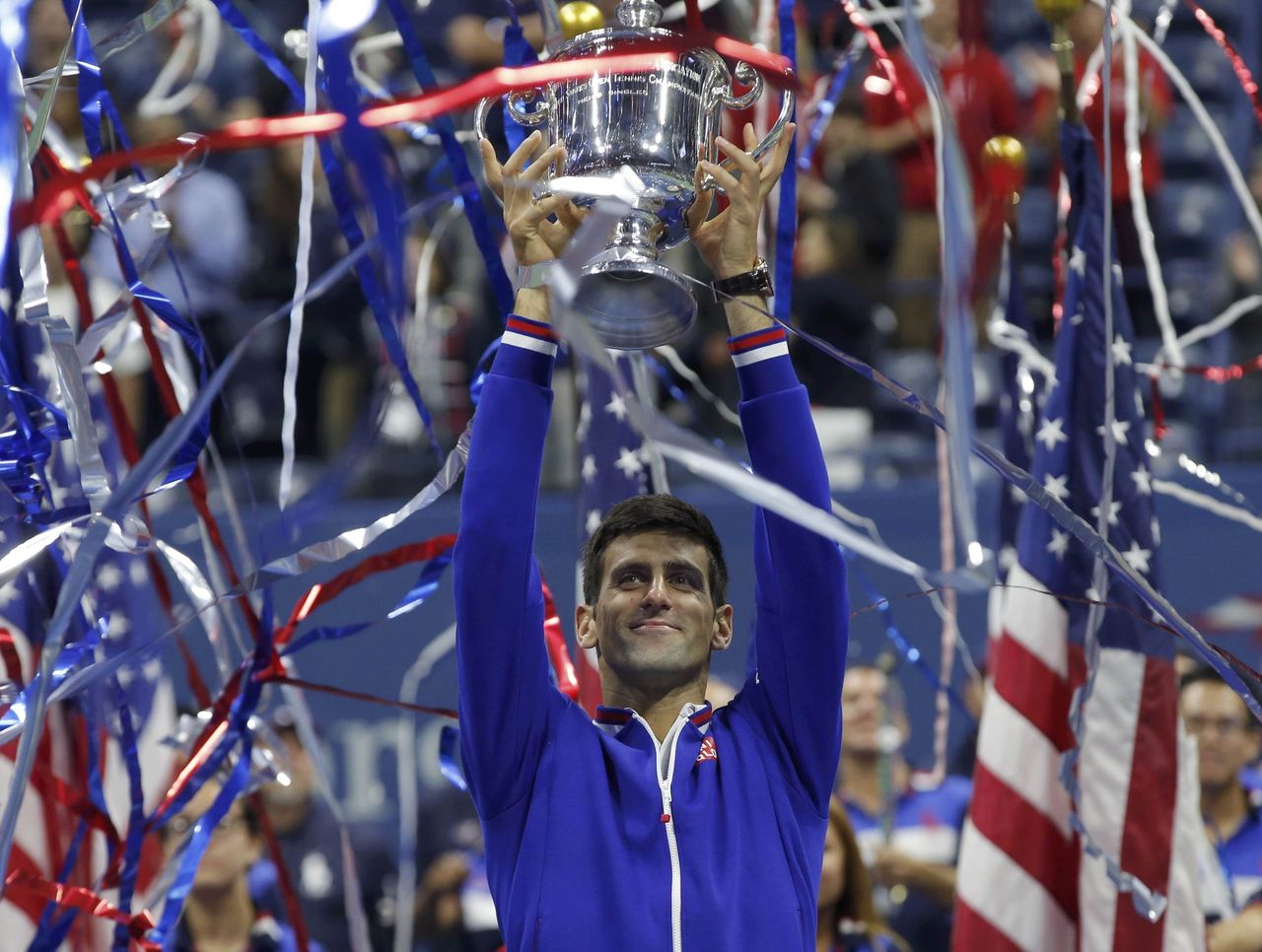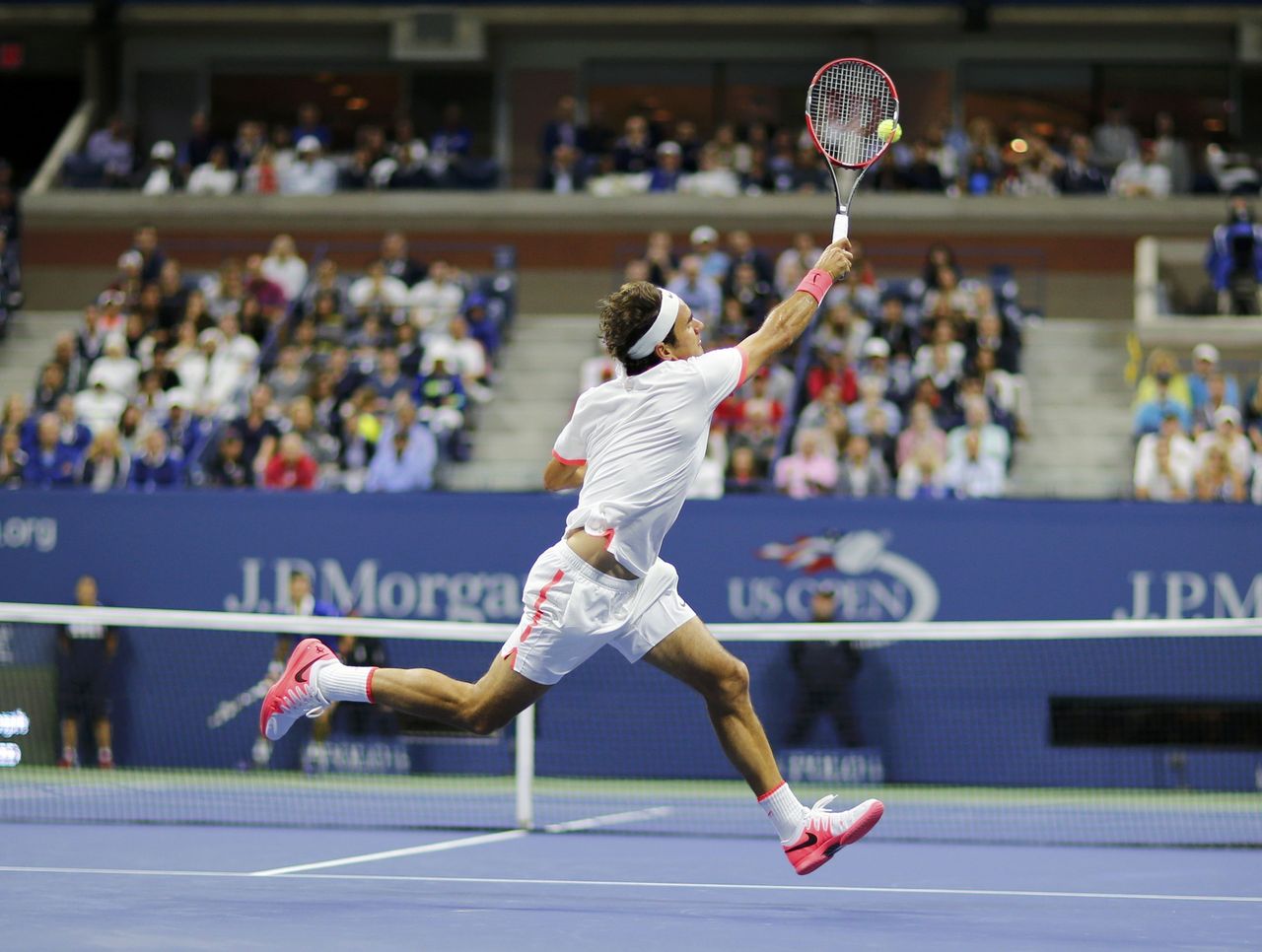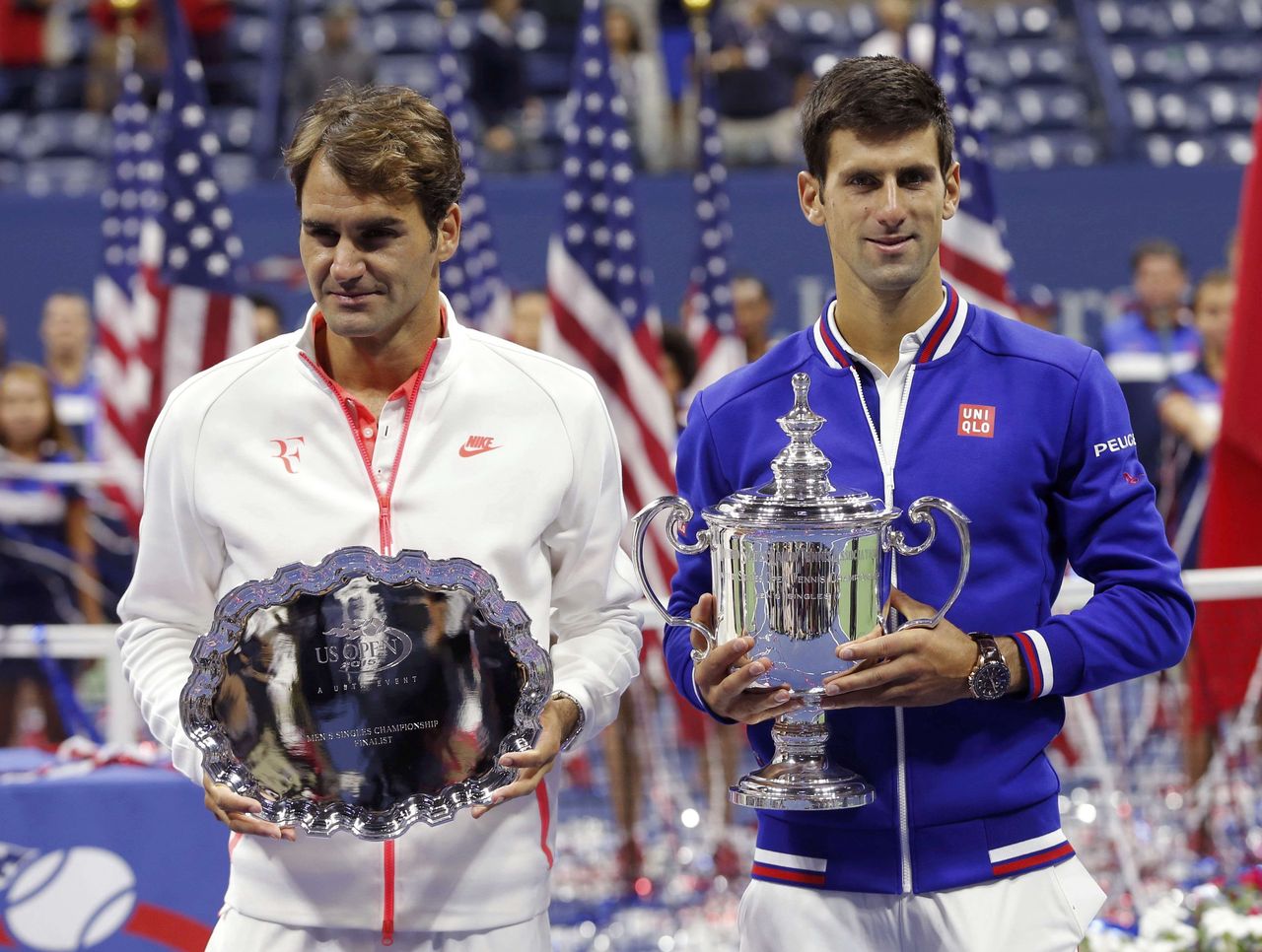At the US Open, Djokovic elevates Federer by bringing him down
Novak Djokovic is not new to partisan crowds. He's no stranger to being treated as an interloper, a party-crasher, even a villain. But it's hard to remember a crowd that met him with the frostiness - and, in some instances, outright disdain - the one in Arthur Ashe Stadium did Sunday night when Djokovic once again denied Roger Federer an 18th major title with a dramatic four-set win in the US Open final.
The Arthur Ashe crowd not only vocalized its delirious support for Federer, but cheered Djokovic's errors and faults louder than his winners. There were faint but unmistakable boos when he roared to the seats after clinching a break. There were some who whistled and even called out "double-fault!" as Djokovic tossed the ball on second serves. You had to feel for him. Tennis is lonely enough on its own; throwing into the mix some 22,000 rabid fans indiscreet about their desire to see you fail, doesn't make things any more comfortable.
To Djokovic's credit, he took it all in stride. He didn't betray any great irritation, as he often does in such situations, and would have been wholly justified in doing this night. When hollers and jeers interrupted his service delivery, he paused, waited patiently for quiet, and then served. He seems to have accepted the pervasive reality of the pro-Federer crowd (and universe).
"Everybody has the choice to support a player they want to support," he said after the match, "and (Federer) absolutely deserves to have the support he does because of all the years and success that he had, and the way he carries himself on and off the court."
By all accounts, Djokovic is having a moment. In winning the US Open, he completed his second three-Slam calendar year (2011), clinched the year-end No. 1 ranking for a fourth time, and became just the fifth man in the Open era to win 10 majors. And yet, he must yearn for the experience of being the guy on the other side of the net, and part of him must wonder if he'll ever know the feeling.
It was painful hearing him, in what was supposed to be his moment, give nearly his entire victory speech over to appreciating his opponent. You sensed he felt obligated; that he didn't feel comfortable exuding elation or pride in himself; that being deferential to Federer would be the easiest path to forging a connection with those in attendance.

"What's the secret?" you can imagine him asking Federer. "How do you make them love you?"
Must he hit with less margin and more abandon? Leave his feet to whack torquing, loose-wristed groundstrokes? Reinvent himself as a serve-and-volleyer? Storm the net and hit daring half-volley returns from the service line? Remove one of his hands from his racket when he hits his backhand?
Perhaps all he really needs to do is lose, because the egregious and unforgivable sin he appears most guilty of these days is being better than Federer, of being unkillable, of standing as the lone bastion against Federer's reclamation of his long-lost kingdom.
Federer last won a Grand Slam in 2012. Since then he's played and lost three major finals, all of them to Djokovic, all in startlingly similar fashion - with Djokovic ultimately wresting away scrums that begin as blow-for-blow stalemates by methodically breaking Federer down, muddying him up, and playing sturdier and more controlled in the moments that matter most; losing battles, winning wars.
Each time, he's had to contend with a mob more boisterously pro-Federer than the one before. Because what Djokovic has done, really, in repeatedly stymieing Federer, is elevate him - from the realm of mere adulation and awe to a mythic, folkloric stratum replete with empathy and commiseration. The support, it seems, is destined to keep swelling until Federer either wins his elusive 18th major or retires, or simply floats off into the ether like Remedios the Beauty.
It's impossible to pinpoint the moment his search for another Slam became so desperate and so charged, but it wasn't always like this. The number itself holds no particular significance, he's still three titles clear of the next-closest challenger, and his legacy is locked away in an armored safe protected by millions of fervent, unbending loyalists.
But with his astonishing late-career revival - the tactical tweaks, somehow both thrilling and pragmatic, that have brought him back to the precipice at age 34 - he's made it mean something, not just to himself, but to scores of vicarious adherents the world over. That he's made it feel so close, so attainable, and just a fingernail out of reach; that somehow No. 18 has become his White Whale; it's made so many of us feel invested in the chase.
And even after the loss, the chase is alive and well. Federer has been playing near-flawless tennis for the better part of four months. Since the French Open, he's 22-0 against non-Djokovic opponents. Coming into Sunday's final, riding a white-hot serve and the game's most unpredictable return tactic, he'd won every set since the Wimbledon title match - a run spanning 11 matches and 28 straight sets. His slalom through his draw was the smoothest of his career, as he held all but two service games and won five of his six matches in 93 minutes or less. And then, just as he did at Wimbledon, he came up against a wall.

A lesser wall might still have come down, but this particular wall is an architectural marvel. Watching Federer careen into it at breakneck speed can be vexing and nerve-wracking and a little heartbreaking, but damned if it isn't a sight to behold. The clash between the world No. 1 and 2 featured inspired, erratic, and mostly brilliant tennis from both players.
Federer's ground game was finicky, but he emptied his whole toolkit; chipped and charged, served and volleyed, cut skidding slices and tailing droppers, uncorked his vaunted sneak-attack return to great effect, each time drawing deep, collective intakes of breath from the Ashe faithful. Djokovic parried and counter-punched, covering enormous swaths of court with his anticipation and speed, passing Federer with crisp backhands down the line, burning him with topspin lobs.
There were blink-and-you'll-miss-it momentum swings, opportunities gained and lost. There was Federer, trying to repeat his feat from the 2014 Wimbledon final and surge back from 2-5 and two breaks down in the fourth set. And there was Djokovic, erasing break point after break point - including three while serving for the championship at 5-4 - with first serves out wide and second serves into the body and deep backhands that submarined toward Federer's shoelaces.
The match turned on those points; on the 19 break chances Federer failed to convert, and the three times in his own, previously unassailable service game in which he was broken after holding at least one game point. He lost two fewer sets than Djokovic despite winning a higher percentage of his return points and just two fewer points overall. It was that close. To tilting the other way, to going the distance, to being an all-timer.
"We walk away from it knowing more about our games," Federer said of his 42-match head-to-head with Djokovic, now knotted at 21 apiece. "And more about ourselves."

And we know a little bit more, too. We know Federer can add all manner of new wrinkles to his game (and he'll continue to add them, bet on that), and look like the best player in the world through six rounds of a major, and it won't matter a lick once it comes time to wrangle with Djokovic in a best-of-five.
We know Federer, who came within a point of erasing a double-break and returning from the very brink, still has every inch the heart of a champion. And we know Djokovic - this great, unloved champion, who withstood countless tense, back-to-the-wall moments and that viciously partisan crowd - has the mind of one, having turned what was once a perceived weakness into one of the greatest strengths in the game.
That may not be enough to sway crowds. Djokovic may never be the man they do their damnedest to drag across the finish line. But he'll keep standing sentinel, unsupported if need be, drawing on his inexhaustible reserve of internal strength, and defending the kingdom. From Federer, or Andy Murray, or Rafael Nadal, or anyone else who comes charging the gates. And in that way, he will elevate them. He will inspire love, even if that love is stubbornly withheld from him.
And for that, at least, we should thank him.